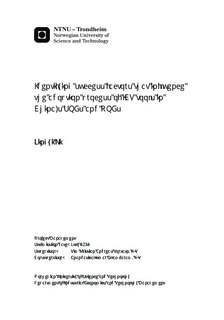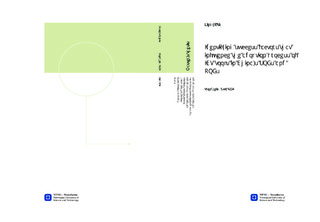| dc.description.abstract | With the advent of globalization, increasingly companies span the globe in order to get highly competitive position and maximum profit (N.Dayasindhu, 2002). However, transferring information within these multinational organizations is a challenge, particularly when it comes to communication (Lucas and Leyland, 2006). Therefore, in order to keep a solid and rapidly economic growing and strengthen national competitiveness, Chinese enterprises have paid more attention to develop Information Communication Technology (ICT). Among all Chinese enterprises, China s state-owned enterprises (SOEs) and private-owned enterprises (POEs) are playing the most significant roles (Xiaohui Wang et al. 2007). However, little study has been done to research the use performance of ICT tools in China s SOEs and POEs. Consequently, this study addresses the question of what factors influence the adoption of ICT tools in China s SOEs and POEs. Due to the scholars such as Jozée and Arnaud (2005) argue that organizational culture can impede or encourage the adoption of ICT in firms, the study will consider how a particular organizational culture can influence knowledge sharing and in turn the adoption of the ICT tools in China s SOEs and POEs. Through literature review, we present theory on each of China s SOEs, China s POEs, organizational culture, ICT and general success factors related to ICT adoption process. The research was conducted through the use of online survey and two interviews respectively. We then analyzed these survey results and interviews using the theory we had already given in background chapter. From these two, we classified general success factors into three categories, namely important , good performance and bad performance for China s SOEs and POEs respectively. We found that organizational culture was not the only one main factor that influences the ICT adoption process. Other factors like organizational size and companies background also have strong impact on prompting new ICT tools in China s SOEs and POEs. We conclude three main problems related to ICT adoption process and then, we put forward our suggestions to these problems. | nb_NO |

